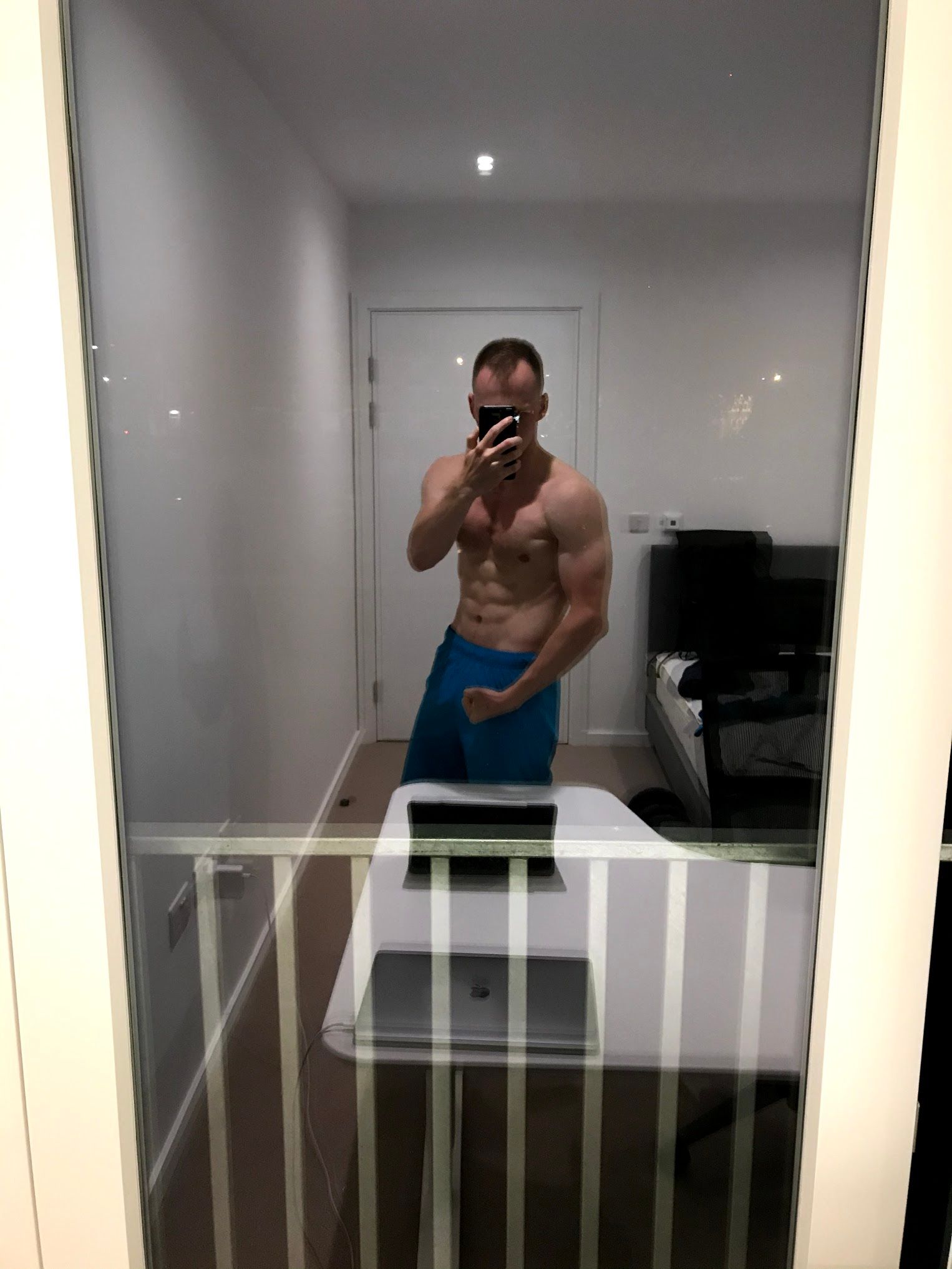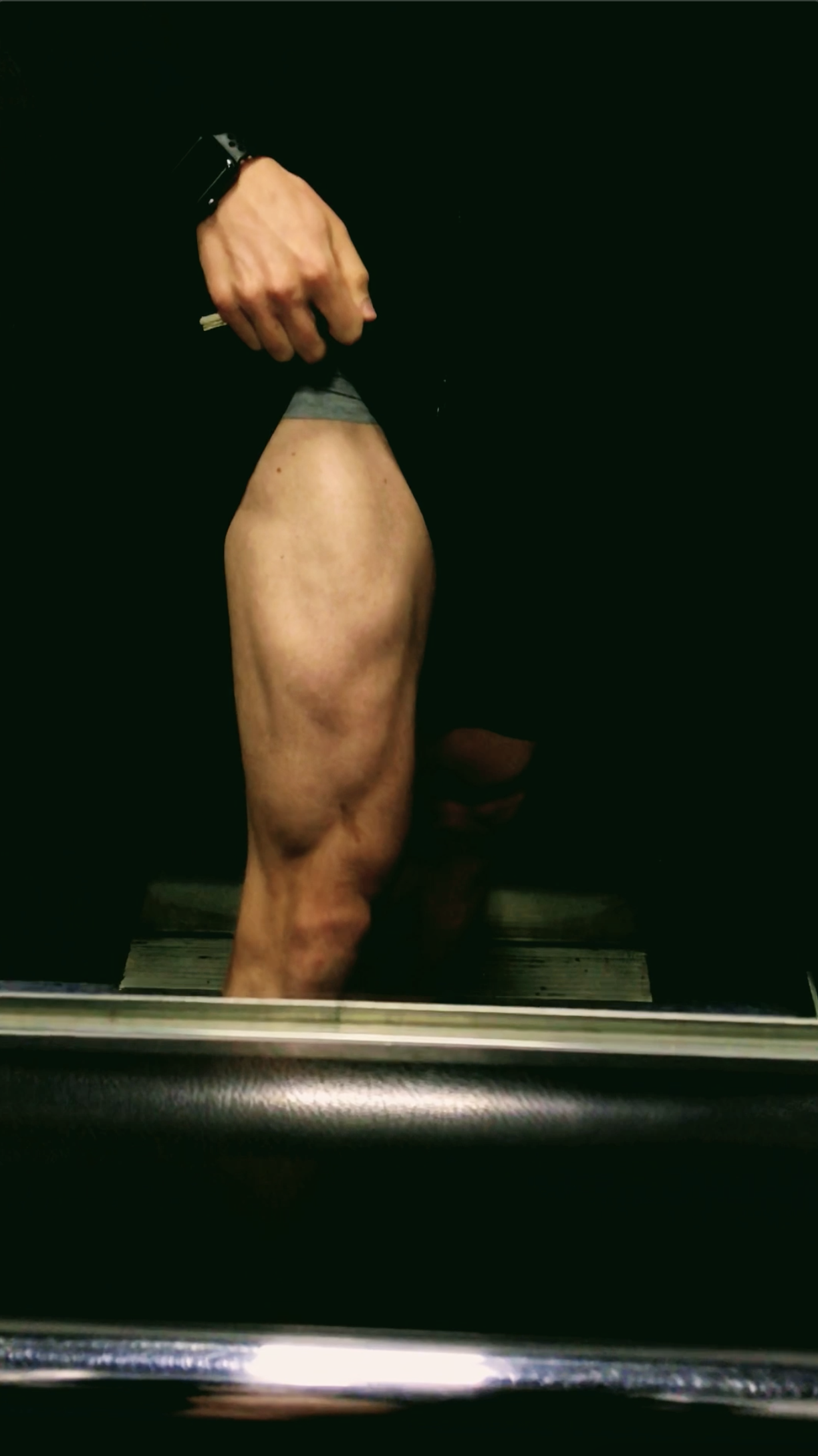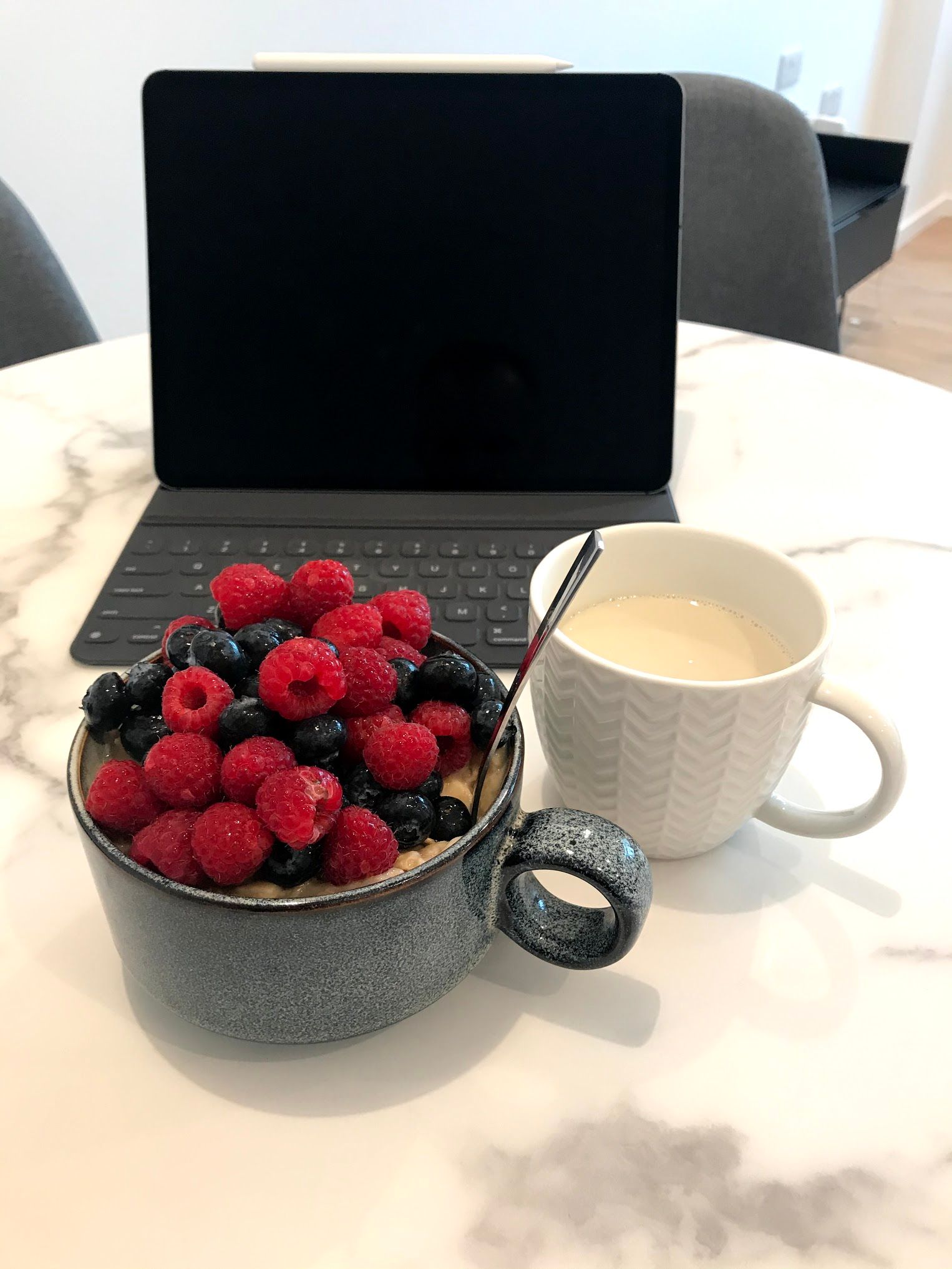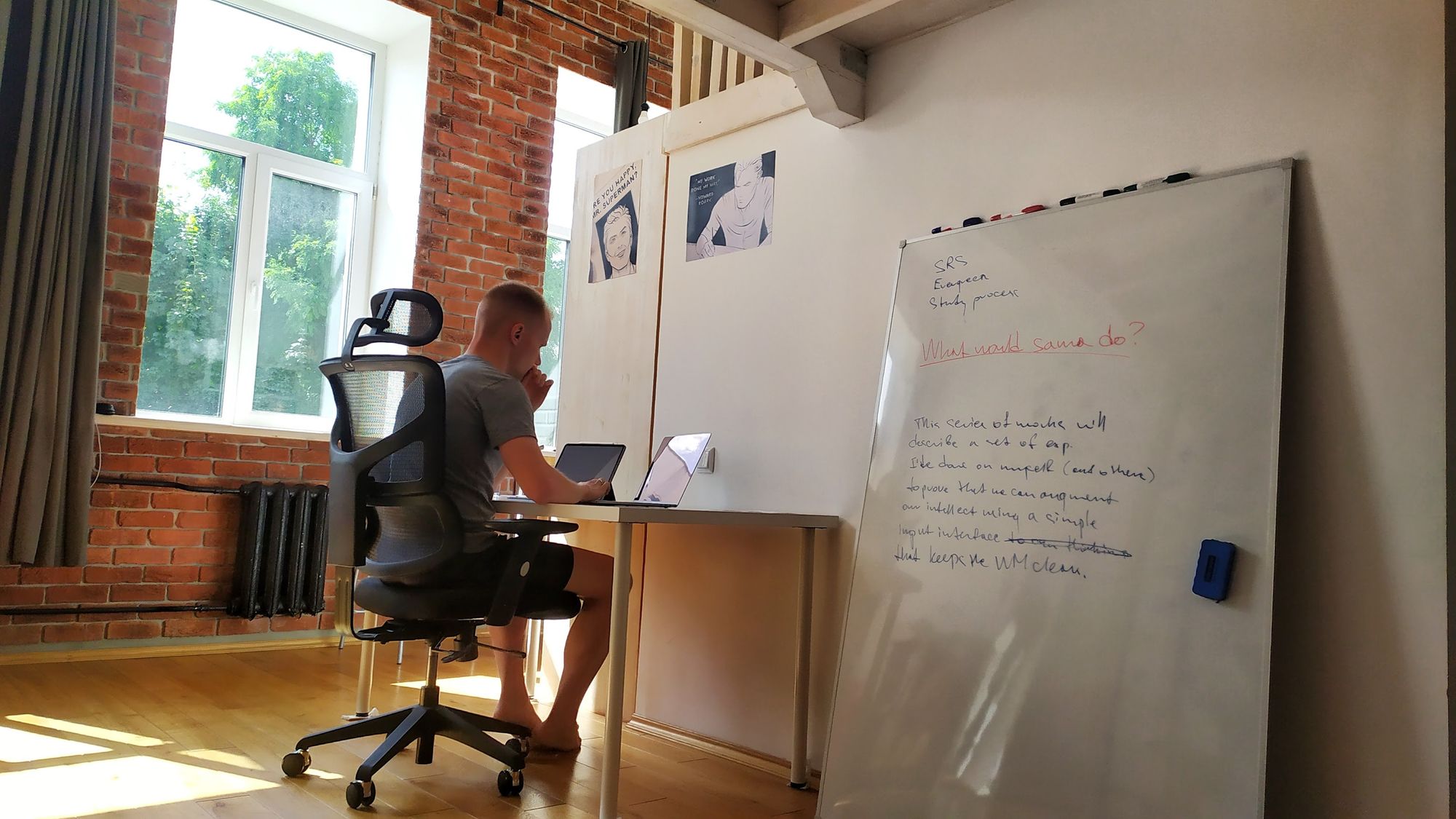Good morning, bad morning
“If you want to change the world, start off by making your bed.” – William H. McRaven

Most people lose their mornings to smartphones, commutes, or breakfasts that take forever. When they finish dealing with nonsense, it’s already noon. They feel like a large chunk of the day is already gone, but they haven’t made any progress. So they give up and promise themselves to wake up earlier next time, not realizing that winning the morning is not about rising early.
Psychologists call this learned helplessness. Once you learn that you’re not able to do something, you will not even bother trying. As morning routine is a process you run every day, even if you don’t think about it, most people quickly pick up the wrong pattern and get stuck.
But if you win the morning, you build confidence. As a result, you’re more likely to win the day because you believe in yourself. And if you get rid of distractions, create routines, and add some rules, this becomes relatively easy to do.
Below is the morning routine I’ve designed for myself. I don’t want you to copy it. Your life is unique, and only you can figure out how to make something work for you. But if you study the routine I’ve built, you have a decent chance of improving how you spend your most precious resource, time.
Routine
The purpose of my morning routine is to prevent distractions. If I get distracted in the early morning, I can’t do great work. My mind hooks up to the noise and keeps thinking about it. The work turns into an uphill battle.
The best thing I’ve found to deal with distractions is to build a strict morning routine and never, ever break it. Here’s a snapshot of my current routine, taken from my time log from Oct 30, 2020:
4:43 wakeup
4:50 workout
5:42 shower
5:52 breakfast
6:30 writing
4:43 wakeup
The first four entries look precisely the same every single day.
Sometimes I wake up a bit earlier or a bit later, but it’s usually around five. The wakeup time depends on the time of the year: I sleep until 6-7 in the winter and shift to waking up at 4-5 when the summer begins.
I wake up with no alarm. After months of experiments with tones and tunes, I’ve discovered that the key to early wake up for me is not the alarm but proper nutrition. After I fixed my meals, I don’t have a problem sleeping too much anymore. The body knows exactly how much sleep it needs, and most days, I wake up well-rested and ready to go.
I wake up quickly and never spend in bed more than a few seconds after opening my eyes. This is super hard to do because my mind tends to use every piece of knowledge I have against me, mostly when I’m short on sleep.
For example, a few days back, I went to sleep at about 12 am and woke up at five. Immediately after I was awake, I had a voice telling me: “Hey, don’t you know that if you wake up sleepy, you’ll have 30% worse cognitive function today? Don’t be a retard. Let’s stay in bed for a while.” I battled the voice quickly with a rule and threw my ass off the bed.
The first thing after wakeup is the bathroom. I wash my hands, face, brush my teeth, and go to the toilet.
Right in the bathroom, I dress up in my training clothes. I keep training clothes in the bathroom for two reasons:
- First, they serve as a reminder that I’m an athlete. And if I don’t want to workout in the morning for some reason, the equipment becomes my lifebuoy. Last Friday, I had a 66-minute HIIT scheduled, and the mere thought of being beaten for 66 minutes with burpees and mountain climbers was painful. But when I got up in the morning and saw my equipment ready, I knew I was going to do it.
- Second, I reduce the transition period between waking up and training to a bare minimum. I don’t have to go downstairs to grab my clothes there, which minimizes the cognitive load and reduces the opportunity of distraction.
When I’m dressed up, I quit the bathroom and open the opposite door to my gym.
4:50 workout


My gym is also my study and my workplace. I’ve built the room for myself, and it has everything I need for all three activities.
I call it “The Productive Room” because of the contract I have with myself: I always do the work when I enter the place. No matter how ugly the task is, like that 66-minute HIIT workout, I work on it if I’m in the room. If I want to procrastinate, I’m free to do that, but only if I quit the room. That’s how I use environment design to improve how I work.
I work out nearly for an hour. I work with a coach through the Future app. I’ve been training with Corinne, my coach, for 9 months already, and it’s been the best investment I’ve ever made in my physical fitness. Before I started with Future, I’ve been doing professional rowing for seven years, so I already had great physique. But after nine months of work with the coach, I realized how limited my fitness was – I didn’t have good flexibility, speed, and stretching.
If you’re interested in trying out Future, I’ve got four passes for one month free and can share one with you. I don’t make any money from it, but I want to support the company because they solved my fitness problem once and for all.
5:42 shower
After I finish my workout, I go to the bathroom again and take a shower.
The shower has one special touch: I switch to freezing cold water for thirty seconds before I step out of the bath.
I do cold showers for two reasons:
- First, I’ve noticed a correlation between taking a freezing cold shower in the morning and being less sick. All other things being equal, I stopped having SARS/coughs a few months after I started taking cold showers. I repeated introducing and stopping the routine two times for three months each, and the correlation continued to work. Today, I’ve been cold showering for a year already and only had two days of uneasiness in the past twelve months.
- Second, I believe that doing something that sucks early in the very morning helps to condition myself to do more unpleasant things during the day. Every time I step into that freezing water, I overcome myself. And after seven years of professional rowing, I can say that overcoming myself physically builds up mental power.
Once the shower is done, I go downstairs to have breakfast.
5:52 breakfast

I have oatmeal for breakfast with different toppings, including bananas, nuts, and berries. I cook breakfast myself as my wife is still asleep and eat in solitude.
When I eat, I pull out my iPad and start writing. I begin with some descriptive writing, jotting down how I feel and everything that’s on my mind. I may even write a few lines about the weather outside.
I think of this morning writing as starting a motorcycle. You need to hit the pedal a few times for the engine to pick it up, and it’s the same with writing. When I begin descriptive writing – documenting everything I see around me – I don’t have a problem of being stuck and not knowing what to write. I just cover what I see. And when I begin writing, my mind wakes up and starts offering curious ideas to explore – that’s when I know the motorcycle is ready for a ride.
After I finish the mind dump and descriptive writing, I begin the daily active recall. I make a line break and ask myself, “What do I remember from yesterday?” In the next ten minutes, I recall and write down key ideas I picked up yesterday.
Here’s what I learned about the daily recall in the past six months:
- I know that I understand the idea really well only if I can rephrase it in different terms fluently. If I have a problem recalling the exact wording of the concept and cannot phrase the idea however I want, then I don’t really know it.
- When writing down ideas, I try to rephrase them slightly and apply the “wl” shortcut that expands into “what other things does it look like?” to interleave things. Transferring ideas out of the framework in which they were initially learned is the best thing you can do to be more creative because creativity is essentially memory plus connecting things. When you ask yourself the transfer question, “what other things does it look like?”, you create more hooks for an idea to be recalled in different contexts in the future.
- If I have trouble recalling ideas, I start “dissecting” the day in all sorts of ways: playing it forward or backward, remembering emotions I felt during the day, bringing back experiences, and so on. If nothing helps, I let it go.
- If I skip the habit the night before, I can recall twice as few ideas than if I did the thing.
People often ask me if the daily active recall habit is similar to Anki for spaced repetition. It’s not. When you are presented with a question, as in the case of Anki, you get a hook to your mind that activates specific neural pathways close to the question of interest. In other words, you make your job easier, and cognitive ease is not what you need to develop a strong memory. Moreover, most people don’t know how to write good questions and do themselves in by creating too obvious ones.
The breakfast lasts from 20 minutes to half an hour. After I’m done, I wash the dishes and start fixing coffee. Although I have a dishwasher, I find joy in cleaning my plate and the kitchen before moving on with my day. This gives me a sense of clarity because I know that everything is organized and not falling behind. As William H. McRaven said, “If you want to change the world, start off by making your bed.”
I have a Nespresso machine, so fixing a cup of americano takes about fifteen seconds. It’s not the best coffee in town, but I like the scent of Colombian Nespresso – that’s my favorite one. With my coffee, I also have a piece of dark chocolate. I like 100% cocoa from Carpo or Montezuma black. Coffee and chocolate help me to finally wake up if the workout turns out to be not so excruciating.
Once I get my coffee ready, I go upstairs and enter my study.
6:30 writing

I sit down at my desk and review the sticky note I wrote for myself the night before with the three most important things for today. Usually, it has one big thing for deep work from 7 to 11, and two large, usually outcome-based (i.e., sell 20 seats of GPT-3 webinar) goals that really move the needle for my personal growth.
Sometimes, the sticky note becomes irrelevant after a good night’s sleep. On these days, I ask myself, “What will I be proud of tonight?” I’ve been using this question for four weeks already and found that it naturally yields things that are either hard or uncomfortable – precisely the things I need to do to make the most progress.
Once I finish my coffee and confirm my plan for the day, I begin working on the biggest thing I’ve got on my plate. I selected writing as my fifty-year skill, so I train daily to get good. That’s the best way I’ve discovered to write consistently and to improve the craft.
Rules
Here are the three rules I follow for my morning routine:
- The first rule is that I never, ever, touch my phone in the morning unless to type down the time entry or take a picture of my breakfast or a beautiful sunrise. I don’t have any communications apps there and keep the Internet turned off, but I still try to avoid it because I may experience an urge to open Kindle and begin reading. I know that overthinking and inaction are my two biggest weaknesses, so I try hard to focus on the output work in the morning.
- Second, I do not engage in any of the activities besides the ones I outlined above. I’ve found that I inevitably get distracted and saturate my subconscious with fake work if I do. I do not talk to anyone before I get my most important thing for the day done, except for brief conversations with my wife in the kitchen.
- I’ve found that if I get one substantial deep work task done before doing everything else, I manage to freeze the time. The perception of time changes, and I feel like I have more of it. I also feel proud of myself and can fully enjoy my afternoon rest when I walk to some distant new coffee shop (I try to go to a new one every day) to get bored and think.
FAQ
Isn’t this boring??
This depends on how you define boredom. To me, the meaning of life is to a) live up to my own expectations; and b) make a significant contribution to the world. Given how limited our time is, I find it boring to be engaged in anything that doesn’t contribute to one of the two aims above.
Also, I find it fascinating that I can repeatedly follow the same routine without thinking about it. During the first two hours of the day, I’m almost like a robot. But when I get to my desk, the mind wakes up. I’ve also found that “scheduled freedom” – when you have strict windows of time, but you do not know precisely what will happen in those slots – is the best work mode for me. I don’t get bored by planning my life in minutes, but I have the guidelines to follow.